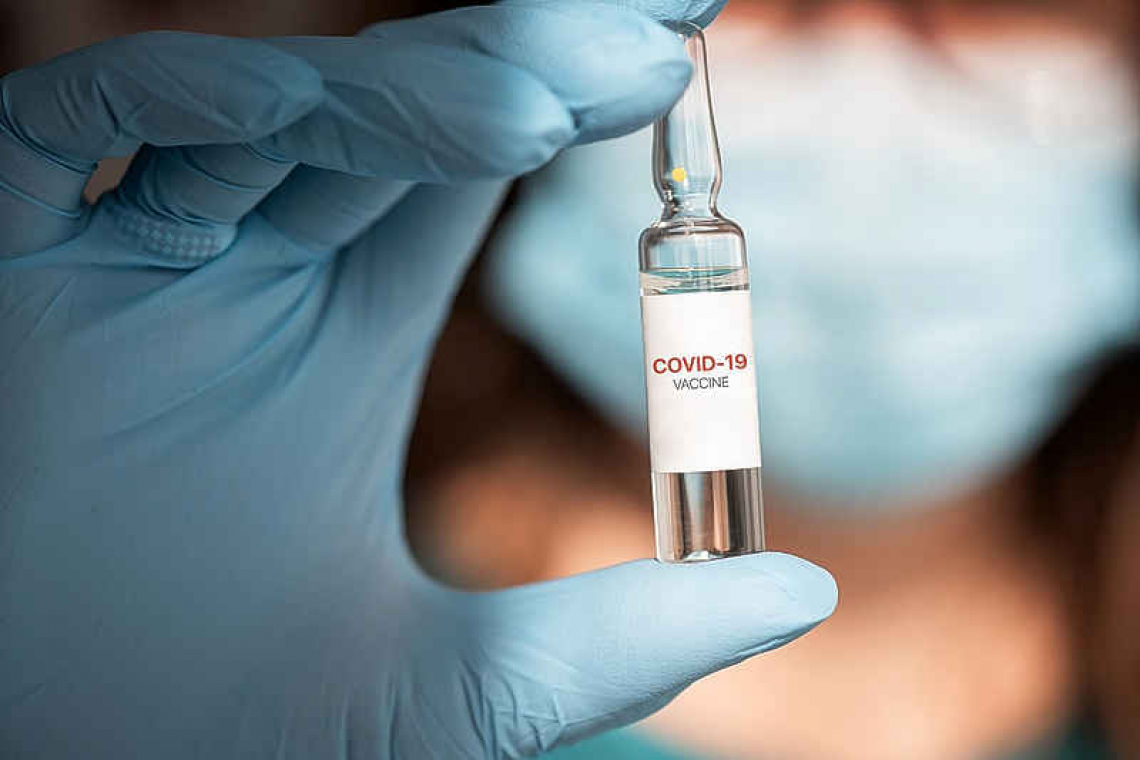By Reuters Fact Check
Confusion has spread online over the impact COVID-19 vaccines can have on transmission. In clinical trials, vaccines were found to give recipients a high level of protection against severe disease – but effect on transmission, due to trial sizes, could not be immediately determined.
The subsequent rollout has therefore revealed a complex picture on transmission, especially in the face of new variants.
Dr. David Eyre, an associate professor at the University of Oxford and infectious disease clinician, co-authored a September study that researched this area in respect to the Alpha and Delta variants of SARS-CoV-2, the virus that causes COVID-19 disease.
He explained to Reuters that the reduction of transmission using vaccines can be measured in two ways. First, this can be achieved by preventing people from becoming infected – and therefore infectious – in the first place. Second would be to reduce how infectious a person becomes should they catch COVID-19 despite vaccination.
Preventing infection
“What we do know is that the vaccines absolutely do drive down someone’s likelihood of getting infected,” Simon Clarke, associate professor in cellular microbiology at Britain’s Reading University, said in an email to Reuters.
Research shows this is the case for the Pfizer-BioNTech and Oxford-AstraZeneca vaccines, which are both used in Britain.
Clarke explained: “If you don’t catch the virus, you can’t spread it to someone else. So, on the grounds that a vaccinated person is less likely to be an infection risk than someone who is unvaccinated, the vaccines do have an effect on reducing transmission.”
However, vaccine efficacy has been found to decrease over time. This has caused some, including Clarke, to propose booster shots as a necessity to keep immunity high.
Preventing transmission after infection
Vaccines can also help prevent transmission by reducing the amount of infectious virus in a person’s body if they do get sick, said experts from Meedan’s Digital Health Lab, a group of public health scientists working to tackle medical misinformation online.
However, studies show they are less effective against preventing transmission of the Delta variant – and more research is needed to study effects in the long term.
Dr. Eyre’s study from Oxford University, which is yet to be peer reviewed, found that the Pfizer and AstraZeneca vaccines reduced both the chances of infection and the transmission of the virus.
But it found that the vaccines were more effective at preventing transmission of the Alpha variant than the Delta variant.
Efficiency reduced much faster against the Delta variant, so that three months after vaccination, vaccinated and unvaccinated people transmitted the virus to the same level.
A study by Imperial College, London, focusing on the Delta variant and community transmission similarly found that it reduced the risk of infection, as well as accelerated clearance of the virus from a person’s system. But despite this, fully vaccinated individuals with breakthrough infections were found to have peak viral load similar to unvaccinated cases.
The study found that vaccinated COVID-19 cases infected 25% of their household contacts, while 23% of contacts exposed to vaccinated people became infected.
However, the authors of the study warned that because the sample sizes were small, transmission from vaccinated cases could be as low as 15%, and as high as 31% from unvaccinated cases, which would be consistent with vaccinated cases being half as infectious as unvaccinated cases.
“The overall conclusion is therefore that vaccinated breakthrough cases can efficiently transmit infection but most likely at a lower rate than age-matched unvaccinated persons,” the authors of the study, Professor Ajit Lalvani and Dr Anika Singanayagam, told Reuters in an email.
The authors also rejected the idea that the study meant vaccines and vaccine passports were redundant.
“The implication of our results for vaccine passport mandates is that if one attends an event where everyone has a vaccine passport, it does not guarantee that no transmission will occur between those present – but the transmission would be much less than at an event where no-one is vaccinated,” they said.
Verdict
Vaccines help reduce transmission by preventing infection in the first place, as well as reducing how infectious a person becomes once infected. Research into the latter is still ongoing; however, current studies show that while vaccinated people transmit the virus less than people who are not, this effect is reduced against the Delta variant. The vaccines are still highly effective at preventing infection, and thus onwards transmission, from both the Alpha and Delta variants.
This article was produced by the Reuters Fact Check team and edited for print media. Read more about its fact-checking work at https://www.reuters.com/fact-check/about. The original article contains several links to the sources mentioned, including social media posts and statistics. See website for more.







